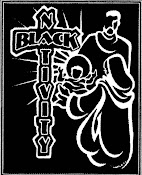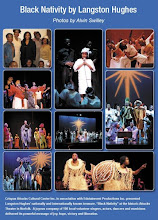Three Divas
– Bessie, Billie & Ruth
Featuring:
Jacqueline Murphy as Bessie Smith, Erika
Grandison as Billie Holiday, and
Dawn Beard as Ruth Brown.
The Band
Conductor,
Keyboards -Kasey Square
Powerful music for Black Liberation
In
the classic book, Souls of Black Folk, W.E.B. Dubois relates a story about the
origin of the song “Nobody Knows the Trouble I’ve Seen.” The story goes that,
when a certain brigadier general was assigned to the Sea Islands on the
Atlantic coast, upon telling the Black inhabitants that they were going to be
denied the land they and their ancestors had long cultivated while suffering
under the lash of brutal slave masters, the Black women began to sing this song
that has been a staple in Black musical culture since then.
Blues
music was born with the field hollers and work songs. However, shortly after
slavery was abolished, there was a sense that justice long delayed would bust U.S.
To understand what led to the Civil War and shortly afterwards would take a great deal more investigation than what is taught and upheld as fact. The truth is the abolishment of slavery was the beginning of a revolutionary process that was carried out by Northern capitalists and their Republican Party, and a small fraction of Northern Democrats that split from the Democratic Party. Yes, the Democratic Party was then the party of slavery.
After the Civil War, when the evils of chattel slavery ended, a new form of slavery began for Blacks. During Reconstruction it seemed that a genuine revolutionary process was underway. But the Northern Republicans joined with the old Confederates, much as the Allied capitalists joined with former Nazis after World War II in a bloc against the Soviet Union . Northern troops were pulled from the South and the promise of Reconstruction was overthrown, and the rise of the KKK began, with peonage laws and sharecropping that were both a part of de-facto slavery. Also, Jim Crow, a most despicable child, was born of this era.
Hence, “Nobody Knows the Trouble I’ve Seen,” and the blues music from Black people, of which Alan Lomax wrote,
“…But it was the Black African, highly rhythmic, collective and improvisatory approach to music-making that clearly sparked most new developments.” He was talking about musical developments, but culture is a reflection of human movements and what is happening at that particular time in history.
Lomax collected many blues traditions—from the hellish conditions in prisons like Parchman Farm in Mississippi , and Angola in Louisiana
It was in a prison where Leadbelly, a blues great, emerged and later went on to lament “Bourgeois Blues.” Another famous blues song is Billie Holiday’s “Strange Fruit,” which tells of lynching down South, where the terror of the KKK was an everyday occurrence. The realities of Black life in the racist South led to Willie King and the Liberators to pen and produce the song “Terrorized” in 2003. In “Terrorized,” King, an older Black man from Mississippi
They’ve Got A Right To Sing The Blues!
"…Let the blare of Negro jazz and the bellowing voice of Bessie Smith singing the blues penetrate the closed ears of the colored near-intellectuals until they listen and perhaps understand…."
— Langston Hughes
Production Available for Bookings!
(757) 323-0302





